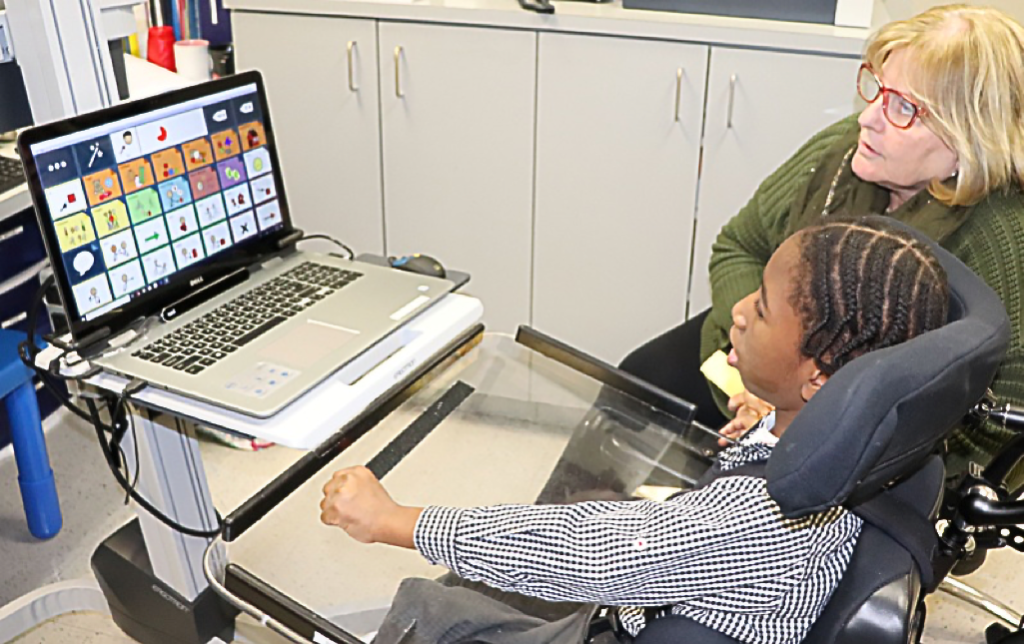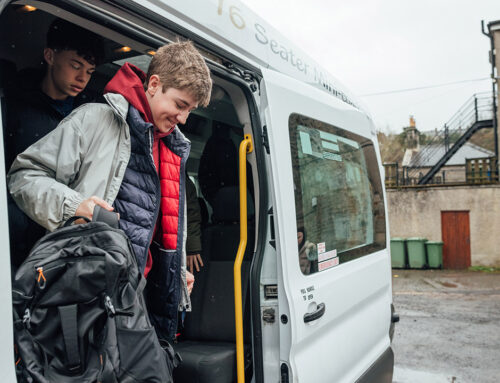At ASAH member schools, partnerships with foundations and donors open the doors to new opportunities for students with complex needs.
One such partnership is happening at North Jersey Elks Developmental Disabilities Agency (NJEDDA) in Clifton. Since 2004, the UPS Foundation has been helping to purchase equipment for the school’s Assistive Technology Lab.
— Dr. William Weiss,
NJEDDA Exec. Director
Over the years, the school has been able to purchase Mimio systems, iPads, laptops, and even a Smartboard on wheels. Last year with the Foundation’s generous donation of a portable Tobii eye gaze system with a laptop, Communicator 5 software and games, NJEDDA was able to create a unique training system for its students. The system allows a student to have access to the latest eye-gaze technology to assist with the development of augmentative communication abilities, visual tracking, attention, and perception.
The system converts text and symbols into speech and gives a student computer access. This system uses eye tracking technology which is used to control a computer with eyes in place of a keyboard or mouse.
“This high-level technology empowers those with physical disabilities to enhance their everyday lives and improve their overall ability to lead an independent life,” said Dr. William Weiss, the school’s executive director.
Tony Harley began training on the eye gaze system about a year ago. When he began attending NJEDDA, he was unable to attend to therapy situations and keep his head up for learning purposes. His therapy team – physical, speech and occupational therapists – worked hard to improve his ability to be a candidate to utilize a speech-generating device. Using this technology, Tony is now able to learn numbers, spelling skills and participate in conversations by using his eyes to gaze at icons on a grid to answer questions.
“Support from the UPS Foundation has allowed us to achieve our mission and improve outcomes for our students. Thanks to UPS, Tony and others like him have access to cutting-edge technology for independent living,” concluded Weiss.






